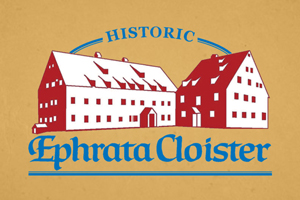Date(s): 08/01/2020
Time: 2:00 PM - 3:00 PM
Householder Homecoming Now A Virtual Visit
The married members of the Historic Ephrata Cloister always played an important role in the community’s success. These families, known as Householders, lived in the neighborhood on their own property, practicing a range of trades, and joining the celibate Brothers and Sisters in worship. Today, generations of the earliest families live through the nation.
Saturday, August 1 will offer a special program to help descendants of these early families discover the place where their ancestors gathered. The Householder Homecoming planned to take place at the historic site is now a virtual visit happening at 2:00 p.m. that afternoon. Museum Educator Michael Showalter will host a new program called “Our Brethren Who Have Their Own Farms:” The Householders of Ephrata. The Zoom program will highlight the role of the Householders in early Ephrata and explore the relationship between the family members and their better known celibate counterparts.
Advanced registration for this free program is necessary. You can register for this program at: https://us02web.zoom.us/meeting/register/tZMrd-yqpz0qGtd_dTCCRHEEisQz9LC8Yhq8 After registering, you will receive a confirmation email containing information about joining the event.
Householders have a longer history with the community than the celibate Brothers and Sisters. Even before Conrad Beissel arrived at the site of Ephrata in 1732, he had a following of families. These members provided economic support to the community and received assistance from the celibate members. At the peak of the community in the mid-18th century, the married congregation outnumbered the celibate order with about 200 family members. After the death of the last celibate member in 1813, the remaining Householders inherited and maintained Ephrata’s buildings, grounds, and artifacts. They formed the German Seventh Day Baptist Church at Ephrata and continued to live and worship at the historic site until 1934.
During the eighteenth-century, nearly 140 different families associated with the community. Keeping track of genealogy for all these families is a daunting task, and the site’s limited resources remain focused on the first-generation members and their most immediate families who made direct contributions during the community’s founding century. The Historic Ephrata Cloister holds few genealogical records extending beyond the eighteenth-century, and many records remain incomplete. Genealogical materials relating to subsequent generations are extremely limited in scope. To learn if your family is among those with ancestry connected to the historic site, click here to view the list of people currently recognized as members of the Ephrata Cloister and the subsequent Ephrata Congregation of the German Seventh Day Baptist Church (1732—1934). We’ve also created short family histories of some people connected with the Eprhata Cloister. To view, click here.
For more information, email HouseholderHomecoming@gmail.com.



